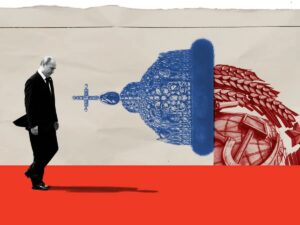CEREES Lecture
Imperial Despotism of Russia: Historical Perspectives
When: Friday 5 December
Time: 17:00-18:00
Where: GC101, Graduate Centre, Queen Mary University of London
Book tickets here

About the Lecture:
Speaker:
Réflexions sur le despotisme impérial de la Russie (Payot, 2025).
“A despot and an imperial vision: this is the prison in which Russian identity has been locked up for centuries. And Vladimir Putin, in power for twenty-five years and the architect of the war in Ukraine, will not deny it! There is no doubt that a pluralistic and open regime cannot emerge sustainably in Russia as long as Russians do not also turn their backs on this imperial identity, which cloaks itself in a false anti-imperialism and a false existential defense.
This is the bold thesis of this essay, which continues with a selection of texts—some little-known—by Europeans who, from the 16th to the 21st century, have questioned Russia’s imperial despotism. Their relevance is troubling. For let us make no mistake: fascinated and critical, these texts also hold up a mirror to Europe, reflecting back to it what it was: colonial, imperialist, and fascist—and what it could well become: antidemocratic.”

Shape the Conversation
To join our mailing list, participate in our programme of events, or find out how we can support your research, please contact hss-cerees@qmul.ac.uk
